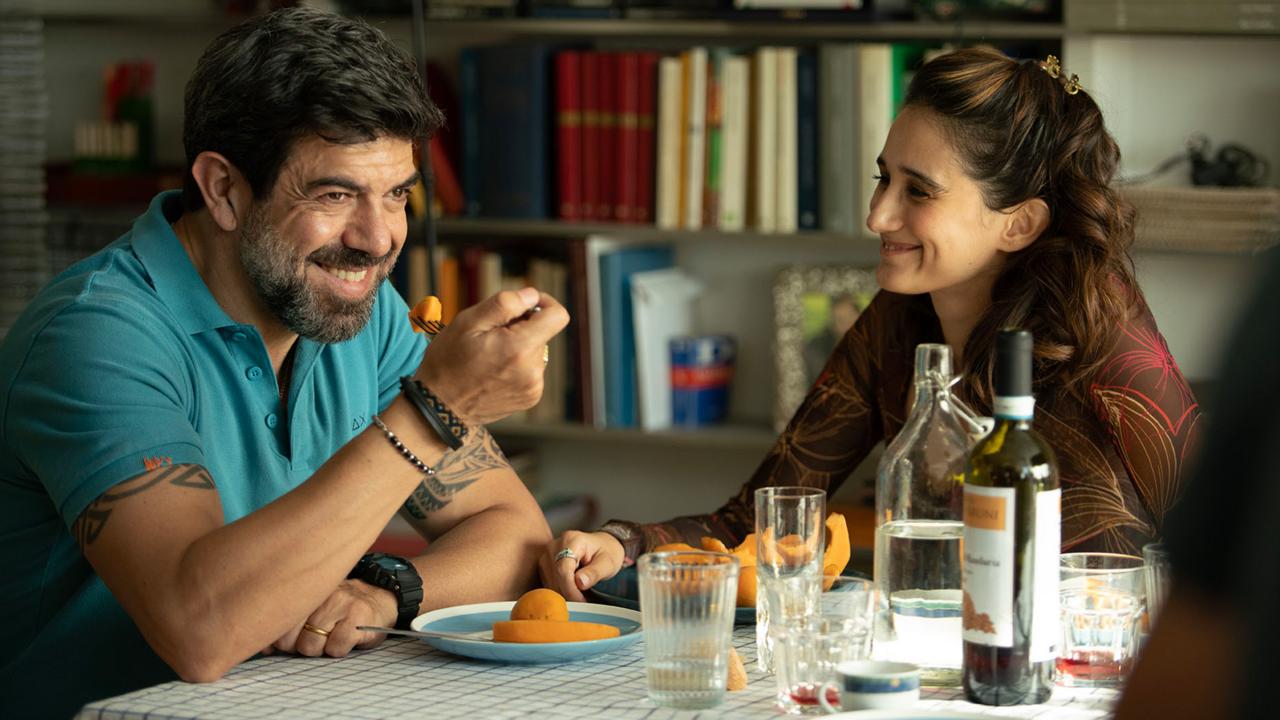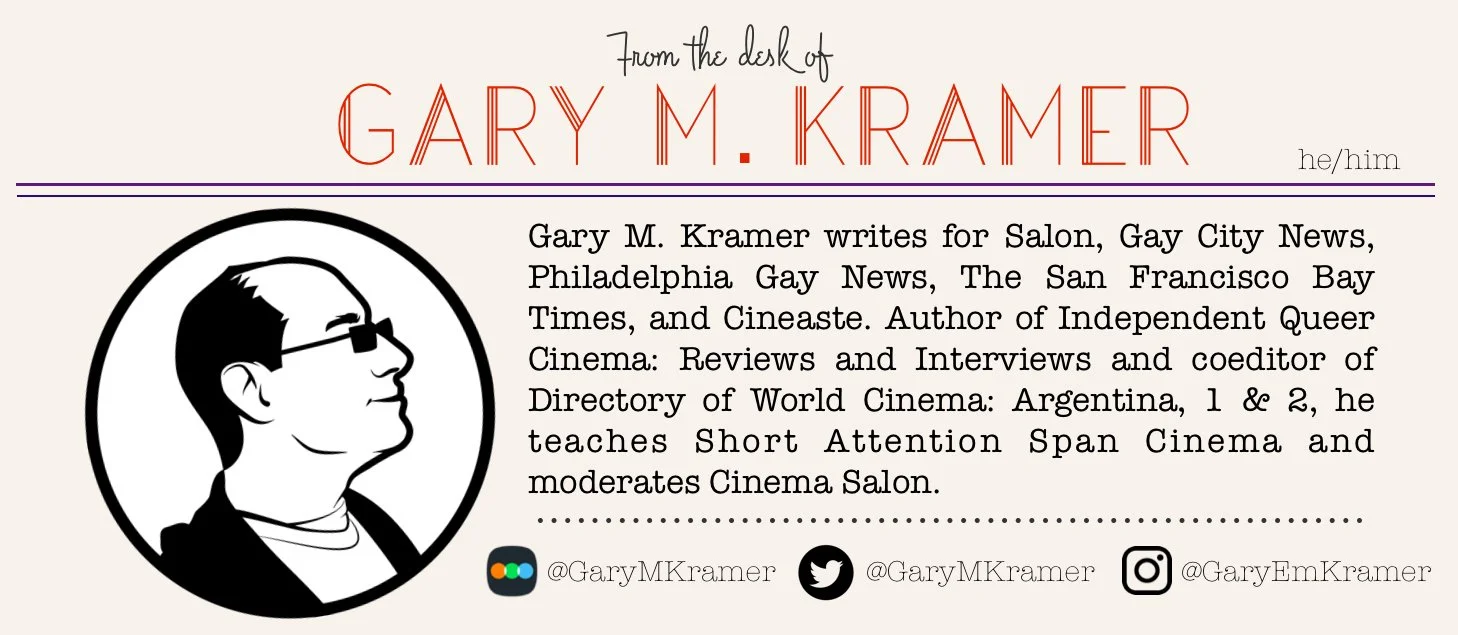TRIBECA 2023: RICHELIEU, ALL YOU HEAR IS NOISE, THE LAST NIGHT OF AMORE, ONE NIGHT WITH ADELA
by Gary M. Kramer, Staff Writer
The Tribeca Film Festival featured the U.S. or World Premiere of several features and documentaries from around the globe that tackle social issues. While some were better than others, here are four notable films screening in this year’s program. Tickets and at home viewing options here.
Richelieu (aka Temporaries) is a stinging social commentary about the exploitation of migrant workers in Canada. Ariane (Ariane Catellanos) is hired as a translator for the Guatemalan seasonal workers at a Canadian food processing plant. She has a past with the plant manager, Stéphane (Marc-André Gronin from C.R.A.Z.Y.) which creates some friction, but things get more intense as he is being pressured to increase productivity and profits. As Ariane comes to understand the company’s poor treatment of the workers—e.g., they must pay dues to a union they can’t join; there is no bereavement leave—she becomes an advocate for them, straining labor/management relations. When one employee, Manuel (Nelson Coronado), relies on Adriane’s help after he suffers an injury, a harrowing scene has her accompanying him to the hospital. Richelieu is an unflinching look at how these migrant workers who go abroad to earn money are abused and indebted and how Ariane compromises both them and herself through her involvement. This remarkably assured debut by writer/director Pier-Philippe Chevigny is easily the best film of the Tribeca Film Festival.
The rousing documentary All You Hear Is Noise profiles three triathletes—Trent Hampton, Melanie Holmes, and Chris Wines—up to, during, and after their competition at the 2019 Special Olympics World Games in the United Arab Emirates. The subjects, all of whom have intellectual disabilities, find purpose in sports; it is an outlet for them to improve themselves and defy naysayers. Directors Ned Castle and Matt Day do not condescend in their presentation of each subject, which includes triumphs and struggles. All You Hear Is Noise spends almost half its 90-minute running time at the World Games and it is impossible not to root for these athletes—especially when one makes as astounding come-from-behind effort. But as each individual admits, it is not about medals but personal growth. The film’s heart is grounded in its last third, where each athlete fights for independence while also battling different forms of isolation. What comes across best is how each subject struggles to achieve being treated with dignity. When Trent says that at the Games, he felt, “Valued and respected as athlete and a human being,” it is hard not to get choked up. But what is even more admirable is the observations their coaches have about seeing how far these athletes have come. This is a heartwarming documentary. (Available online June 19-July 2).
The Last Night of Amore takes almost half of its two-plus hours to set up its big set piece, an ambush during a transport of diamonds. The driver is Franco Amore (Pierfrancesco Favino), a cop who has spent his 35 years on the force without firing a single bullet; he is set to retire in the morning. Along for the ride are Franco’s partner, Dino (Francesco Di Leva), and two Chinese passengers. The evening challenges Franco’s integrity and incorruptible character as either the authorities will discover his involvement in the crime and he will go to jail, or the Chinese will kill him. However, director Andrea Di Stefano (The Informer) slackens the tension as Franco’s faithful wife, Viviana (Linda Caridi) arrives on the scene and does what she can to assist her husband in scenes that strain credulity. Meanwhile Franco tries to figure out who set him up. It is hard to invest much in Franco’s situation because his noble character is pretty much one-note. Favino, a reliable actor, sports a perpetual hangdog expression which makes him appear more resigned than menacing as he tries to extricate himself from the sticky situation he finds himself in. Most criminal of all, The Last Night of Amore offers few dramatic surprises to hold much interest. This glossy film—Milan at night looks terrific—goes nowhere slowly.
Another festival misfire is One Night with Adela, Hugo Ruiz’s ambitious directorial debut which is filmed as a single take. The style is meant to compound the emotional roller-coaster Adela (Laura Galán from Piggy) experiences over the course of an extreme night that starts with her being harassed on the street and killing a man who robs her. But the murder is just a prelude for greater “justice” Adela is seeking. Making anonymous calls to a night-time radio show, Adela reveals that she has “plans to hurt someone.” Alas, the entire film is more low-key than high-octane. Ruiz insists on long scenes of Adela walking, driving, or struggling with a corpse to make viewers feel her breathing and seething. But he also bores viewers when Adela is off-screen, running a quick errand or taking a bath. (These episodes may give Galán a necessary breather for her hyper-ventilating performance.) By the time the film presents her assignation with Rafael (Raudel Raúl Martiato), and its “shocking” reveal and aftermath, One Night with Adela has worn out its welcome. Scenes of Adela dancing, or giving an operatic speech certainly show Galán’s go-for-broke commitment to the role, but the film lacks the emotional power and payoff Adela craves. (Available online June 19-July 2).






